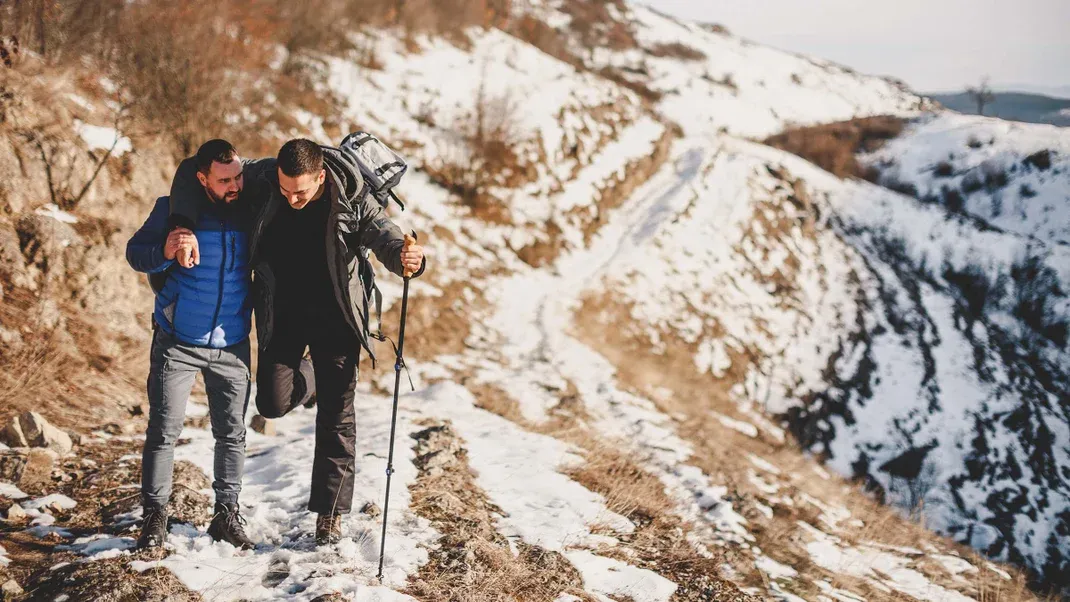Don’t Become a Victim: How Situational Awareness Can Save Hikers’ Lives
Don’t Become a Victim: How Situational Awareness Can Save Hikers’ Lives is a concise and informative guide that emphasizes the importance of situational awareness for hikers. The book provides valuable tips and techniques for hikers to stay safe and avoid potential dangers while out in the wilderness. It covers a range of topics including how to assess and manage risks, how to navigate unfamiliar terrain, and how to stay alert to potential threats. With real-life examples and practical advice, this book is a must-read for anyone who enjoys hiking and wants to ensure their safety on the trails.

Don’t Become a Victim: How Situational Awareness Can Save Hikers’ Lives
Hiking is a popular outdoor activity that allows individuals to connect with nature and explore new landscapes. However, it also comes with its own set of risks and dangers. Every year, hikers fall victim to accidents, getting lost, or encountering dangerous wildlife. While some of these incidents are unavoidable, many can be prevented through the practice of situational awareness. By remaining alert and aware of their surroundings, hikers can significantly reduce their risk of becoming a victim while enjoying the great outdoors.
Situational awareness is the ability to perceive, comprehend, and anticipate potential dangers and threats in one's environment. It involves being mindful of your surroundings, recognizing potential hazards, and taking proactive steps to mitigate risks. For hikers, situational awareness is a critical skill that can mean the difference between a safe and enjoyable outing and a potentially life-threatening situation.
One of the most important aspects of situational awareness for hikers is being mindful of the terrain and weather conditions. Hiking trails can be unpredictable, and changes in elevation, rocky terrain, and inclement weather can all pose significant risks. By paying attention to the trail conditions and weather forecasts, hikers can make informed decisions about their route and be better prepared for any potential challenges they may encounter.
In addition to being mindful of the physical environment, hikers should also be aware of their own physical and mental state. Fatigue, dehydration, and lack of proper nutrition can all impair judgment and increase the risk of accidents. By listening to their body and taking regular breaks, hikers can maintain their physical well-being and reduce the likelihood of making careless mistakes.
Furthermore, hikers should also be mindful of their surroundings and any potential threats that may be present. This includes being aware of wildlife in the area, as encounters with predators or venomous creatures can pose a serious risk to hikers. By staying alert and knowing how to respond to encounters with wildlife, hikers can minimize the likelihood of a dangerous encounter.
Another important aspect of situational awareness for hikers is being mindful of other people on the trail. While hiking is often a solitary activity, it is not uncommon to encounter other hikers, backpackers, or even hunters in some areas. By being aware of the presence of others, hikers can avoid potential conflicts and ensure that they are able to navigate the trail safely.
In addition to being aware of their physical surroundings, hikers should also be mindful of their belongings and valuables. Theft and vandalism can occur in outdoor recreation areas, and hikers should take precautions to secure their belongings and avoid leaving them unattended. By taking steps to protect their belongings, hikers can reduce the risk of becoming a victim of theft or other crimes.
Finally, hikers should also be mindful of their own behavior and the impact it may have on their safety. This includes being mindful of the use of electronic devices, alcohol consumption, and risky behaviors such as taking unnecessary risks or disregarding safety guidelines. By being mindful of their own actions, hikers can reduce the likelihood of putting themselves in danger.
Overall, situational awareness is a crucial skill for hikers to develop in order to stay safe while enjoying the great outdoors. By remaining alert, aware, and proactive, hikers can significantly reduce their risk of becoming a victim of accidents, wildlife encounters, or other potential dangers. While some risks are inherent to outdoor activities, practicing situational awareness can help hikers make informed decisions and mitigate potential hazards, ultimately saving lives.




